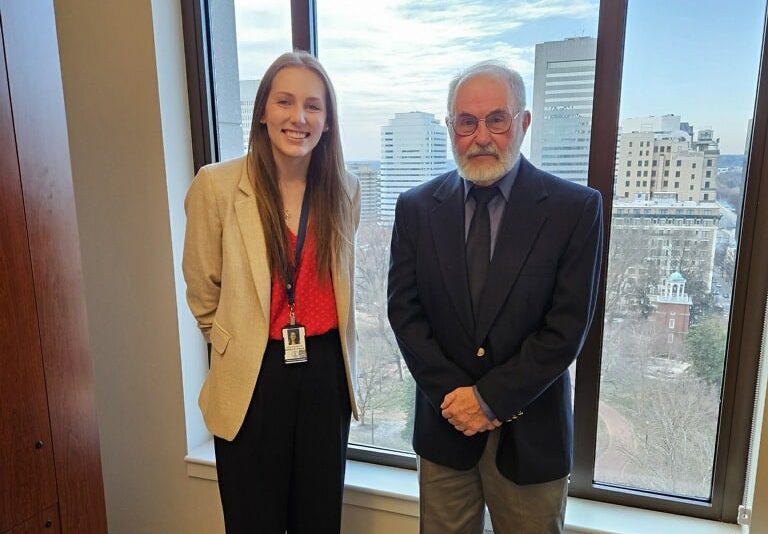Coal and timber companies on the defensive in West Virginia lawsuits
A set of bitter lawsuits has erupted around the question of who is responsible for contaminating the drinking water in Rawl, WV. and even what can be said about it.
In late April, a Massey Energy subsidiary filed a libel suit against attorneys representing citizens who believe they were injured by chemicals in the water supply of Rawl and several neighboring towns. The citizens had previously sued the company for contaminating the water supply.
The subsidiary, Rawl Sales and Processing, sued Kevin Thompson, a Beckley, WV attorney for residents of Rawl, Sprigg, Lick Creek, and Merrimac, sometimes known as “the Forgotten Communities.”
Rawl Sales and Procdessing says that Thompson wrote a Mingo County Commissioner a letter on March 17, 2006 that contained false defamatory statements. The coal company says the letter was libelous because it said that Rawl knowingly contaminated water.
“The purpose of that letter was to try to help the people [in the Forgotten Communities] get water,” Smith said. “The fact that they bring a law suit over trying to get these people some type of drinkable water seems ridiculous.
“I think it’s unfortunate that they’ve taken this step. Instead of luring us to this level, instead of filing law suits like this I think it would be more beneficial if we would work together to try to help these people.”
Jeff Gillenwater, director of external affairs for Massey Energy Co., insists the suit “is not frivolous.” Gillenwater also said, “If Mr. Thompson believes his statements are true, he is welcome to prove them; but we are confident he cannot.”
In order to win a libel suit, a plaintiff who is a public person or corporation must prove that the defendant acted with malice, and either knowingly published something that was false or acted in reckless disregard for the truth. The law has consistently upheld the right to criticize public figures on issues of significance to the public. For example, in the 1964 case New York Times v. Sullivan, the Supreme Court said “debate on public issues should be uninhibited, robust and wide-open, and that it
may well include vehement, caustic and sometimes unpleasantly sharp attacks on public officials.”
It is a fact that the water in the towns of Rawl, Sprigg, Lick Creek, and Merrimac is too contaminated to drink, according to numerous experts. By all accounts, the water has such a wretched taste that few people would veture to drink it.
One resident, Pastor Larry Brown of the Rawl Church of God in Christ, has been working to develop the Lick Creek Water Project. He said he personally began noticing a problem with the water around 1984, about 22 years ago, and has been working on the water project for 13 years.
The project would bring city sewage and water from Williamson, W.Va. to the Communities. In March, April and May, the towns received bottled water to drink and giant containers filled with clean water not only to drink, but also for bathing, courtesy of the Federal Emergency Management Agency (FEMA). But that water has run out, and there’s none on the horizon. Even more emergency water is tied up in the courts.
Thompson is representing clients in two separate cases filed against Rawl Sales and Processing.
and Massey Energy. One was filed in November 2005 for Christopher Lee Hicks of Rawl, W.Va. and and another in January 2006 by six members of the Blankenship family of Merrimac, W. Va. Respectively, the suits allege a total of 15 and 14 counts of violations of environmental law by Rawl Sales and Processing.
The plaintiffs seek a combination of temporary water replacement, personal injury compensation for exposure to toxic substances, property damage, medical monitoring, abatement of threats to the environment, abatement of public nuisances and violations to SCRMA and the Groundwater Protection Act “as a result of the Defendants’ conduct.”
A previous case filed in September 2005 alleges that the coal mining activities have damaged the water supply and exposed residents to toxic substances. Among other things, the suit speaks of violations of the West Virginia Surface Coal Mining and Reclamation Act in that the company introduced coal sludge into the water supply, and that as a result of a variety of coal processing activities named in the lawsuit, the underground water supply feeding the Communities is “contaminated with heavy metals such as lead, arsenic, manganese, barium, and magnesium.”
“I’m very interested in the Lick Creek Water Project,” Thompson said. “That’s one of the reasons I wrote my letter. I knew the Mingo County officials were doing all they could to run those people a water line, to get them safe water. But they were short of funding. I offered the county commission the use of all our reports, anything that we could do with the evidence we’ve gathered to help them secure the $168,000 they are short on funding for that project, or just to get more in the way of a temporary bottled water supply.”
Thompson’s letter is as follows: consisted of three paragraphs:
“It has come to my attention that you have been actively involved in securing fresh, safe water for the people of Rawl, Merrimac, Lick Creek and Sprigg. I want to commend you for the help that you have given my clients.
“We have collected a massive amount of evidence that proves beyond any doubt the water in Forgotten Communities is deadly. Our evidence proves that Rawl Sales & Processing knowingly contaminated the water. Our evidence shows that they did it without permits. And, our evidence shows that the people of Rawl are slowly dying.
“If there is anything that we can do to help our clients get clean, safe water please let me know. We would be willing to share with you all of our documents, scientific evidence, medical advice and expert reports if you think that might make a difference.”
His partner, Smith, said “We have significant evidence from experts.”
Related Articles
Latest News

Leave a comment
Your email address will not be published. Required fields are marked *





Leave a Comment